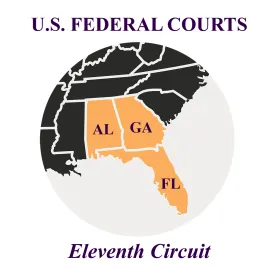In an order issued on October 15, 2021, United States District Judge Thomas W. Thrash from the Northern District of Georgia granted an employer’s Motion for Summary Judgment and ruled that plaintiff’s separation agreement with a release and covenant not to sue precluded him from bringing an ERISA class action for breach of fiduciary duties on behalf of the company’s 401(k) plan.
Prior to initiating his ERISA lawsuit in Dan Alfonso v. Cumulus Media, Inc., et al., plaintiff had worked as an engineer for a wholly owned subsidiary of Cumulus Media, Inc., a national media and entertainment conglomerate, from August 2014 to May 2019. On May 31, 2019, plaintiff executed a separation agreement that contained a general release of claims provision in which plaintiff effectively released Cumulus Media from all current and future claims, including any arising under ERISA. The separation agreement also included a covenant not to sue “by reason of or related to” the released ERISA claims.
Less than a year after executing the separation agreement, plaintiff, who had participated in the company’s 401(k) retirement plan during his employment at Cumulus Media, initiated a class action on behalf of the plan against the 401(k) plan fiduciaries, which included Cumulus Media, for alleged breaches of fiduciary duties in their administration of the plan.
Cumulus Media moved for summary judgment, arguing that plaintiff was precluded from bringing an ERISA action against the company because of his separation agreement. In response, plaintiff argued that the language of the agreement only precluded him from bringing ERISA claims in his individual capacity and it in no way affected his ability to bring derivative claims, such as a breach of fiduciary duty claim under § 502(a)(2), on behalf of the company’s 401(k) plan. Plaintiff therefore argued that derivative actions, like his, brought on behalf of the plan, could not be waived under the release language of the separation agreement.
The court disagreed, reasoning that the appropriate question was not whether derivative actions could be waived under the separation agreement. Instead, the court found that even if the agreement had not waived plaintiff’s ability to bring an action on behalf of the plan, he had executed a covenant not to sue Cumulus Media in any capacity, whether individual or derivative, and was thus precluded from bringing any legal action “of or related to” claims he had released in the agreement, including ERISA claims.
The court also dismissed plaintiff’s alternative argument that Cumulus Media had failed to show that he had made a knowing and voluntary waiver of his ERISA claims. The court found that not only was plaintiff’s education level sufficient, but that plaintiff was barred from arguing that he had failed to read the agreement because he represented when he executed it that he had read the agreement carefully. In addition, he had been given forty-five days to review it and consult with an attorney. Finally, the plaintiff had received valuable consideration as part of the agreement.
The case is Alfonso v. Cumulus Media, Inc., No. 1:20-cv-847-TWT (N.D. Georgia Oct. 15, 2021).





 />i
/>i
